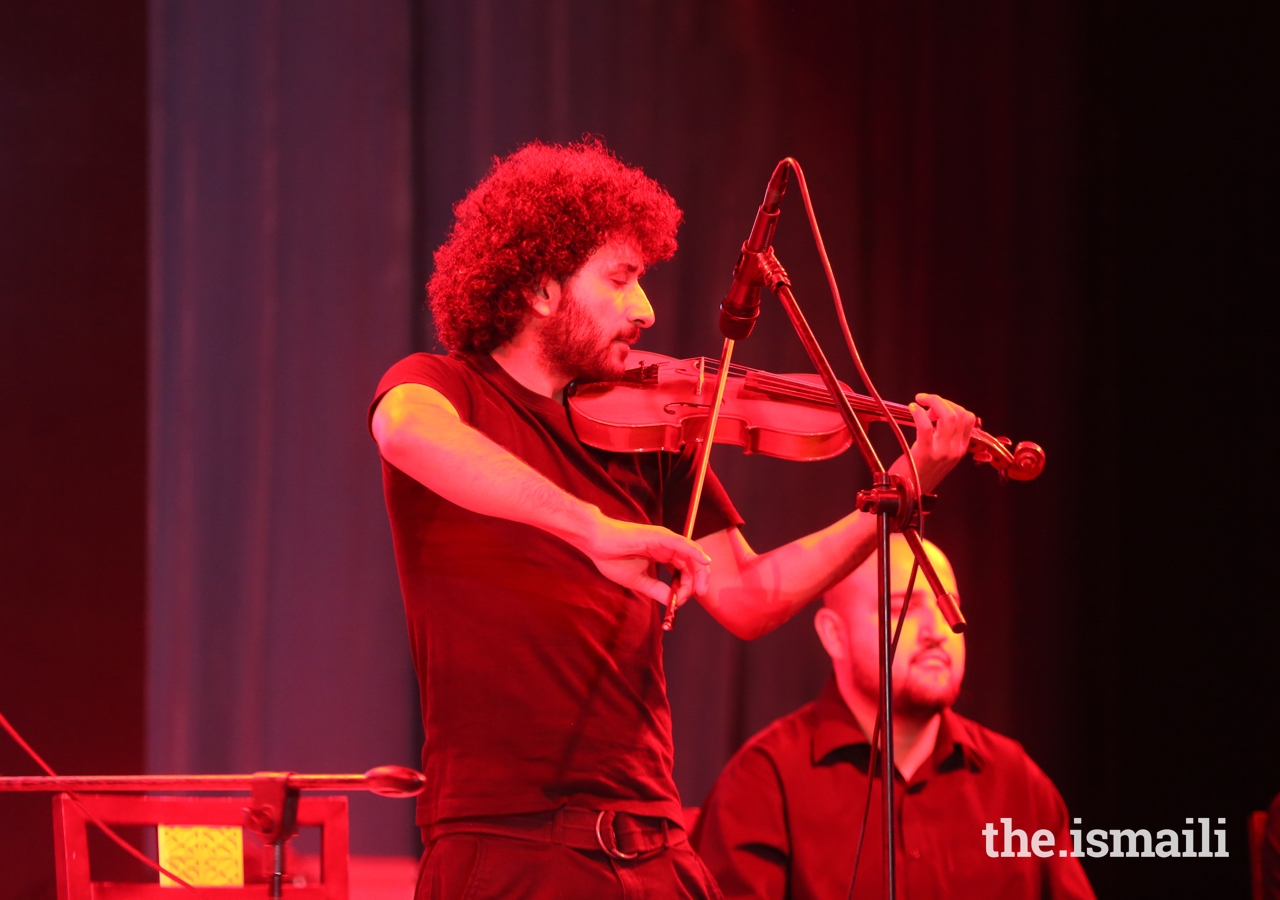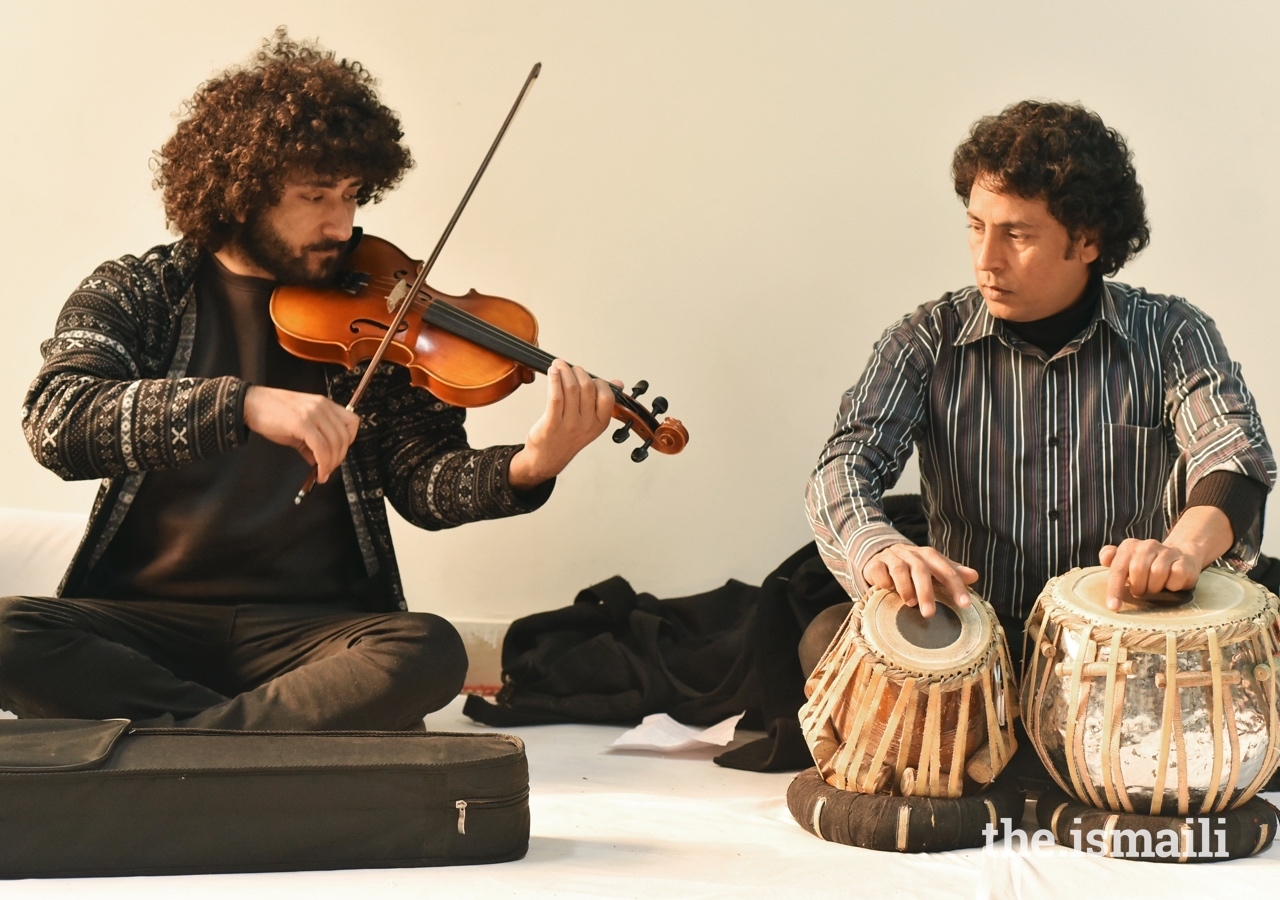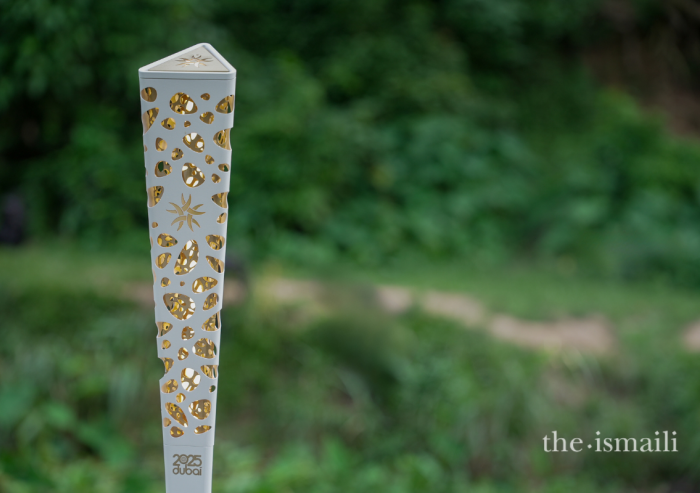Zia ul Karim
Twenty-four-year-old Zia ul Karim is the first graduate from Hunza Valley to receive a bachelor’s degree in Musicology from the prestigious National College of Arts (NCA) in Lahore. Adept at multiple instruments, an expert in classical and folk music, and with a special interest in composition, Karim is committed to exploring the relationship between music and culture.
“Never in war or conflict can a community focus on its musical traditions,” said Zia. “Music for me therefore, is a symbol of peace, positive thinking, care, understanding, and a means to unity.”
Narrating his personal journey Zia said, “I am the first musician in my family. Though they had certain reservations about me pursuing a career in music, which was unheard of and seen as a hobby, I knew where my heart was.” Zia continued, “My family wanted me to follow more traditional subjects like law or engineering. One thing I knew from early on: music gave meaning to my life.” Zia’s interest in music developed as a boy scout when he learned to play the flute. A quick learner, he soon became widely known and appreciated for his talent.
His music is primarily aligned with mystical themes and philosophies of personal devotion. “I am interested in bridge music,” Karim explained. “Classical is a very pure form of music. People connect deeply to a form of fusion, which proves that diverse musical forms are also inclusive in nature.”
Zia is currently exploring western fusion. He has formed a band, along with four other musicians from Hunza. The band’s name is “Jiill,” which means “to rise” in the local language Burushaski. Their most recent song is a hip-hop track called “Gunahgar” or “sinner”.
As a multi-instrumentalist, Zia enjoys playing traditional instruments including the rubab, zarbuka, flute, and percussion instruments. He mentioned how Yanni, a Greek composer and his musical role model, inspired him to start playing the violin as well.
“Xhighini is a local instrument that is very famous in Hunza,” said Zia. “I have worked extensively on the reinvention, revival, and preservation of this instrument. I used to play folk music on the xhinghini but have now started playing classical music on it as well.”
Many people in the region had a negative view of a career in music. Initially, Zia also faced questions. However, over time he has witnessed people’s attitudes towards music change in good part due to initiatives such as the Music School in Hunza, which is managed by the Aga Khan Music Initiative (AKMI).
“People were shocked when I told them that I was studying music at NCA,” Zia laughs. As of 2019, things have changed. Parents are eager to send their children to the music school, especially after seeing Zia’s success. Today, parents are concerned about their children’s progress in the school, just like they would in any other academic institution.
Recently, in collaboration with the Aga Khan Youth and Sports Board and with his professors at NCA, Zia conducted a music camp for students from Hunza, Chitral, and Islamabad, teaching them music theory, history, analysis, instrument skill development, and vocal training. Zia now dreams of being an internationally-renowned artist. He wants his band to become a source of positivity for the world, and plans on pursuing higher education abroad.
Sara Haider
Sara Haider is one of Pakistan’s foremost musical talents. She came into the spotlight after a memorable performance as Marty in Nida Butt’s production of Grease, and has since achieved considerable acclaim as one of the chief backing singers on the popular show Coke Studio, before being given the chance as a lead singer.
Asked about her journey, she spoke of the challenges she faced breaking into the music industry, as well as her aspirations, and some of the rewards of success.
“My thinking on music is very different from that of people that I meet in the music industry… I am still struggling despite meeting some success. I have big dreams and my goals have always been the same: I want to be a singer, I want to be really good at this, I want to make a career out of it. It has not been an easy path.
“It has been an enthralling experience and it was like a dream come true to work with musicians that I have always been a fan of. At times, it has been hard to believe that I am actually working with these superstar musicians.”
Sara’s musical journey began with listening to her mother reciting ginans in Jamatkhana and at home. She mentions her mother as her greatest source of inspiration, in terms of music, living a balanced life, and serving the community. Sara also points to learning teamwork at girl guides from a young age as a contributing factor to being a successful musician.
“It’s magical to be around others who love music as much as I do. The opportunity to work with a team, learn how to compose different music, how to sing in different languages — there have been so many amazing experiences. As a backing vocalist you have to get hold of these languages and their dialects with their meanings. Every instrument is interconnected and everybody is depending on each other: they are profoundly linked with each other.”
Asked about her hobbies, Sara mentioned the fact that she is now a certified scuba diver, citing the freedom one can feel underwater, away from computers and phones.
“No one can bother you there, you can’t hear anything — the only thing you can hear is your breathing. It’s like meditating, it’s a wonderful place to be: a world away from all the noise of life, a world of peace. You learn to appreciate both sensations: you appreciate silence when you are around music and you appreciate music when you are around silence. The balance is really lovely — I think both things complement each other.”











